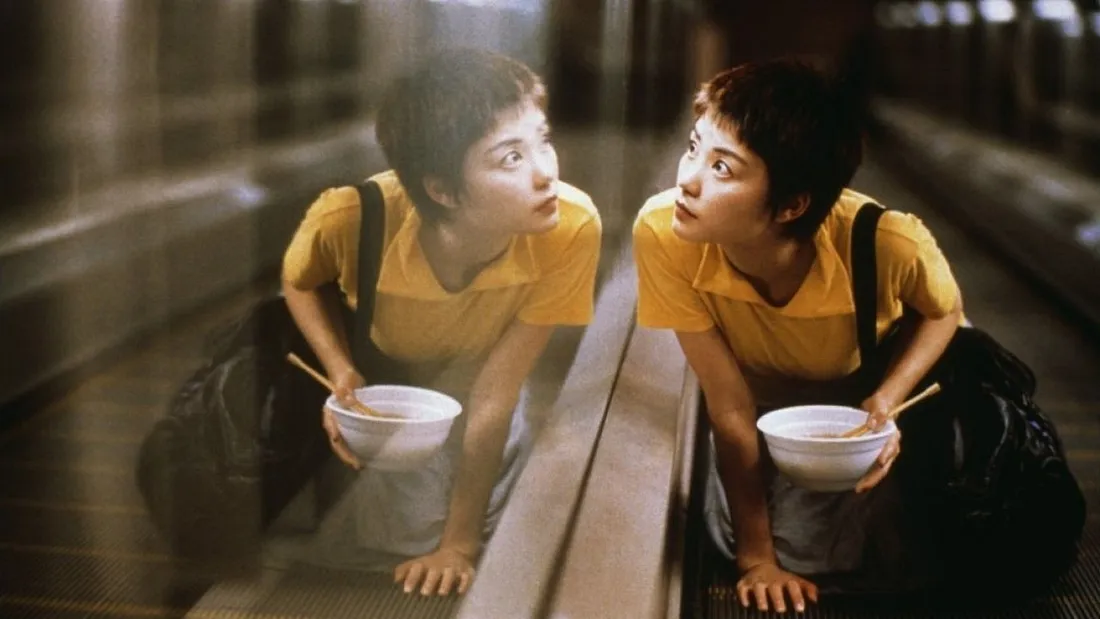Our present behavior and acts are fundamental in molding our identities and have an impact on shaping as well as determining our destiny. However, what occurs when a person is engulfed in a malady that prevents them from remembering time or the events that occurred within it? In the face of such circumstances, the person could feel extremely lost and confused. Their sense of identity and general well-being may be negatively impacted in the long run as they are unable to sustain personal relationships and navigate daily life due to the progressive deterioration of their memory. But arguably it is harder for the victim’s near and dear ones to suffer more because they are more aware of the inherent deterioration. However, the sufferer possesses the benefit of obliviousness.
Avinash Arun‘s second feature film, Three of Us, deals with such a complex situation and explores the tense dynamics between a woman navigating through the challenges of her initial stage of dementia and the impact it has on her relationships with her husband and her first youthful attraction. As the film moves forward with leisurely steps, it explores the emotional toll that impacts her relationship with the two men, highlighting the strain it puts on her marriage and the rekindling of old feelings with her first love. Through a series of stirring and restrained moments, it delves into the delicate balance between holding onto cherished memories and accepting the inevitable loss of them, ultimately painting a poignant picture of love, sacrifice, and resilience in the face of a debilitating illness.

Shailaja (Shefali Shah), who has worked in the Mumbai family court, is retiring from her job. She is married to Dipankar (Swanand Kirkire), an insurance sales agent, and blessed with a son who is studying at a college away from his home. As she has been diagnosed with early-stage dementia, one day she decides to visit the small town in the Konkan region, where she had her schooling twenty-eight years ago. She hopes to relive her cherished memories and reconnect with her old friend, Pradeep (Jaideep Ahlawat). Her husband is supportive of her decision and agrees to accompany her on this trip. Pradeep, married to Sarika (Kadambari Kadam) and the father of two young girls, is surprised by Shailaja’s sudden appearance and curious about the intention of this surprise visit. Pradeep accompanies Shailaja in visiting the places that bring back bitter and sweet memories of the past, reminiscing about the good times, and reflecting on how much has changed since then. Dipankar, who witnesses the renewal of the bond between the childhood friends, feels a sense of joy and nostalgia for the friendship that has stood the test of time. At the same time, Pradeep also feels a renewed sense of fulfillment and happiness in his life. But as Shailaja’s proximity to Pradeep starts to blossom, the strain begins to appear in her relationship with her husband.
Three of Us is a calm film that does not seek any attention, strictly adheres to a situation, and sees how it develops without any unnecessary drama or exaggeration. Through their stillness, characters communicate and arouse subtle emotions. However, the film’s refusal to settle for cliches is what makes it such an unexpected triumph. It gains a lot of points for choosing the less-traveled narrative path. Without concentrating on wallowing in the misery of its tale, the film illustrates the strength of the human spirit and its capacity for growth and healing. It leaves viewers with a sense of hope and a reminder about discovering true beauty in our everyday lives. After the final frame disappears, we know where the story will inevitably end, so we cling to that hope while valuing the memories and welcoming the painful reminder of the power and pain of love. One of the most important aspects of the story is its economy in providing layers of intricacies in shaping up the characters and providing a deeper grasp of the treatment of the film. It allows for a more nuanced and rewarding interpretation of the plot and the individuals inhabiting the universe of the film.

There is a central dilemma in Three of Us, which the filmmaker settles in such a graceful manner that it lingers in the mind. The final moment of emotional exchange between Shailaja and Pradeep takes place while they are seated on a Ferris wheel, suspended in mid-way, a metaphor for their relationship, which does not have any future. This symbolic scene encapsulates the bittersweet nature of their connection, as they are physically elevated but emotionally stagnant, and the Ferris Wheel becomes a poignant representation of their inability to move forward, leaving the audience with a lingering sense of melancholy and contemplation. Shailaja, who has worked on handling the legal separation of married couples, is now coping with the fear of forever erasing the possibility of reconciliation and happiness. Moreover, both Dipankar and Sarika have an unavoidable tendency towards envy and resentment towards their respective partners, growing fondness for each other. But they express their feelings with a measured sense of sneer, knowing that acting upon them would lead to further complications and heartbreak. In one of the scenes, Dipankar seems to lose his cool, but it becomes more of a momentary outburst than a lasting change in his demeanor. Such detail in nuances brings the characters to life and adds broadness and vitality to the comprehensiveness of this lingering tale of reconciliation and retrieval. Credit goes to the screenplay, written by Avinash Arun, Omkar Achyut Barve, and Arpita Chatterjee, which remains an extremely intimate observer of the predicament of the characters and is elevated by the humorous as well as philosophically resonant dialogues written by Varun Grover and Shoaib Nazeer.
Though it is a film by Avinash Arun, I should also add that it’s substantially Shefali Shah, Jaideep Ahlawat, and Swanand Kirkire’s film as well. The film’s pulse comes in many ways from the trio’s brave and beautiful central performance. As the protagonist Shefali commands most of the tender scenes, managing to seem both spirited and vulnerable at the same time. Her moments of normalcy make the moments rob her of herself that much more painful – to see such a strong personality suddenly become lost in a world it no longer recognizes or understands. Jaideep on the other hand seems to effortlessly navigate through the moments he shares with his childhood loves, always maintaining his composure and controlling any signs of vulnerability as much as he can. Swanand on the other hand, with amazing restraint and an air of confidence, handles the delicateness and complexity of his character’s situation with gentility and poise. Kadambari Kadam also brings a splendid tone to her role in depicting a woman who thoughtfully negotiates her position.
Avinash, who has also shot Three of Us, effectively frames the characters of his film in a way that captures their simplest feelings and frailties with a sense of relatability. The beauty of the Konkan region is showcased beautifully, never allowing the majestic visuals to interfere with the narrative. The scenes edited by Sanyukta Kaza never overstay their welcome, as there is a perfect precision with which each moment is seamlessly transitioned, enhancing the overall poetic tone and tranquil rhythm of the film. The sound design by Vinit D’Souza brings a cohesive and vivid experience where the silent moments speak volumes and the smallest details are brought to life. The background score by Alokananda Dasgupta is soothing enough to set the perfect mood and create an engrossing experience.
A film that can evoke this level of poignancy is rare and unique; the feeling persists long after the film’s heartbreakingly poignant last minutes on screen. With his observant and perceptive style, the filmmaker reveals his themes slowly but with unmistakable sureness, unveiling the complexities of human emotions and relationships for far longer than the intended running length. The film captures the raw emotions and struggles of its characters, making it a must-watch for any film enthusiast.
Three of Us is currently streaming on Netflix.



